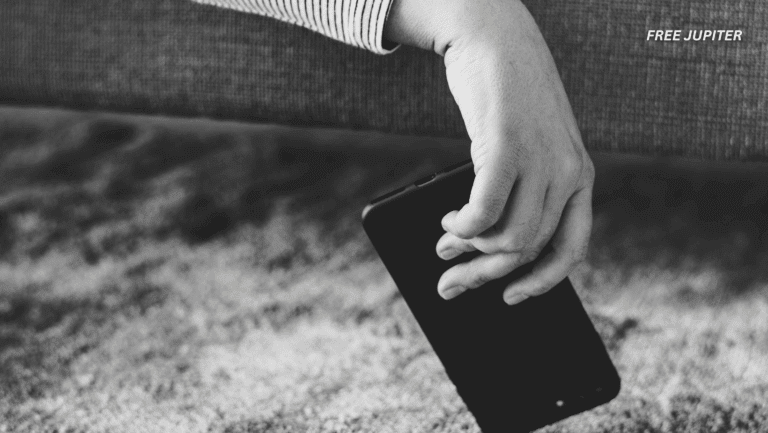Friendships are supposed to bring comfort, laughter, and mutual growth. But sometimes, a person who seems close might actually harbor resentment, envy, or hidden hostility. The signs are rarely obvious at first—they often come disguised as small remarks, odd silences, or a lack of enthusiasm for your success. Below are fourteen subtle but telling signs that a “friend” might actually be more of a hidden hater than a supporter.
1. They Downplay Your Achievements
When something great happens—like a promotion, award, or personal milestone—a true friend celebrates wholeheartedly. But if someone brushes it off with a lukewarm “That’s nice” or a dismissive joke, it could signal envy. Instead of cheering for your success, they might focus on the flaws or minimize your effort. Psychologists suggest that this behavior often stems from insecurity or comparison. Real friends lift you up; fake ones make your victories feel smaller.
2. Their Comments Always Have a Negative Twist
Positivity seems to drain out of every conversation with them. No matter what you share, they manage to find the downside. You might talk about a new job, and they’ll say, “Are you sure you can handle that stress?” Their remarks slowly chip away at your excitement. This constant negativity is often less about you and more about their need to control the tone of the relationship. Friends should encourage growth, not dim your light.
Read more: If You Feel More Alone As You Get Older, These 8 Habits Might Explain Why
3. They Rarely Support Your Decisions
Instead of cheering you on when you take a leap of faith, they plant seeds of doubt. “Are you sure that’s a good idea?” becomes their favorite phrase. It’s fine for friends to express concern, but when every choice you make is questioned or criticized, it reflects a lack of trust or confidence in you. Supportive friendships allow space for mistakes and learning—not constant skepticism.
4. They Lack Empathy When You’re Struggling
True friendship reveals itself during difficult times. If someone vanishes, changes the topic, or offers shallow sympathy when you’re hurting, that’s not empathy—it’s avoidance. This emotional absence shows they’re unwilling to share your burdens. Real friends don’t just show up for parties and celebrations; they stand beside you in silence when words aren’t enough.
5. They Constantly Compete With You
A little friendly rivalry can be healthy, but if everything becomes a competition—from careers to relationships to trivial matters—it’s a red flag. Competitive friends often view your progress as a threat to their self-worth. They might subtly brag, one-up your stories, or mimic your accomplishments just to stay ahead. Friendship isn’t a scoreboard—it’s supposed to be a safe space for mutual pride.
6. They Gossip About You Behind Your Back
Hearing that a friend has shared your private life with others can feel like a betrayal. Gossip is a silent destroyer of trust. Those who frequently badmouth others will likely do the same to you. Often, gossiping stems from insecurity or a craving for validation. A genuine friend protects your secrets; they don’t trade them for attention.
7. They Disappear When You Need Them
When life takes a difficult turn, their phone suddenly goes silent. They’re too “busy” or conveniently unavailable. Fair-weather friends show up when times are good but vanish during storms. Consistent absence in moments of need often reveals that their commitment was never real—it was situational. Reliable friends stick around through both the calm and the chaos.
Read more: People Who Secretly Love Solitude Are Almost Always Doing These 12 Things, Psychology Says
8. They Copy Everything You Do
At first, imitation might feel flattering—your style, your hobbies, your speech patterns. But when a friend mirrors every detail of your life, it starts to feel invasive. This behavior can indicate low self-esteem or a lack of personal identity. Healthy friendships celebrate individuality, not carbon copies. It’s fine to influence one another, but boundaries matter too.
9. They Exploit Your Kindness
Being kind-hearted can unfortunately attract those who take advantage of generosity. If someone constantly relies on your help, time, or resources without reciprocating, they may be using your empathy rather than valuing you. True friendship is balanced—giving and receiving flow both ways. When you’re always the one giving, resentment eventually builds.
10. They’re Overly Critical of Your Choices
Some friends hide hostility behind the mask of “honesty.” They frame their cutting remarks as helpful feedback—but the real intent is to undermine. Instead of encouraging you, they nitpick your lifestyle, appearance, or ambitions. Constructive criticism is offered with care; destructive criticism is delivered with smugness. Recognizing the difference is key to protecting your confidence.
11. They Get Jealous of Your Other Friendships
Possessiveness in friendships often signals insecurity. If your friend sulks or becomes passive-aggressive when you spend time with others, they might fear losing their influence over you. They could even badmouth your other friends to keep you isolated. True friends trust your right to have other connections—they don’t view your happiness elsewhere as a threat.
12. They Undermine Your Confidence Subtly
Some people don’t attack your confidence outright—they chip away at it slowly. They might make “jokes” about your abilities, correct you unnecessarily, or downplay your ideas in group settings. Over time, these micro-digs can erode your self-esteem. This behavior often comes from jealousy—they feel stronger by making you feel smaller. The best way to counter this is to recognize it and step back from those who dim your worth.
13. They’re Only Present for the Fun Parts
A friend who’s always ready for parties but never available for emotional support might not be a true companion. These “good-time” friends love the energy of celebrations but shy away from depth or discomfort. Their presence is conditional—they enjoy the highlights but can’t handle the hardships. Genuine friendship requires more than laughter; it needs loyalty through lows.
14. They Pretend to Care—But It Feels Hollow
Perhaps the most subtle sign of all is emotional inconsistency. They’ll say the right words—“I’m so happy for you!” or “You deserve it!”—but their tone or timing feels off. The smile doesn’t quite reach their eyes, or the praise sounds rehearsed. It’s as if they’re performing friendship rather than living it. Real friends don’t need to act—they care naturally, without envy or restraint.
Read more: It’s Not Just You: 11 Reasons People Pull Away From Friendships With Age
The Quiet Art of Recognizing Hidden Negativity
Recognizing these signs isn’t about labeling people as villains—it’s about understanding emotional dynamics. Some individuals act out of pain, insecurity, or comparison, not malice. Still, it’s important to protect your peace and energy. Healthy friendships are built on respect, honesty, and mutual upliftment. If someone repeatedly leaves you feeling drained, small, or doubted, that’s not friendship—it’s quiet sabotage.
Featured image: Freepik.
Friendly Note: FreeJupiter.com shares general information for curious minds. Please fact-check all claims and double-check health info with a qualified professional. 🌱










